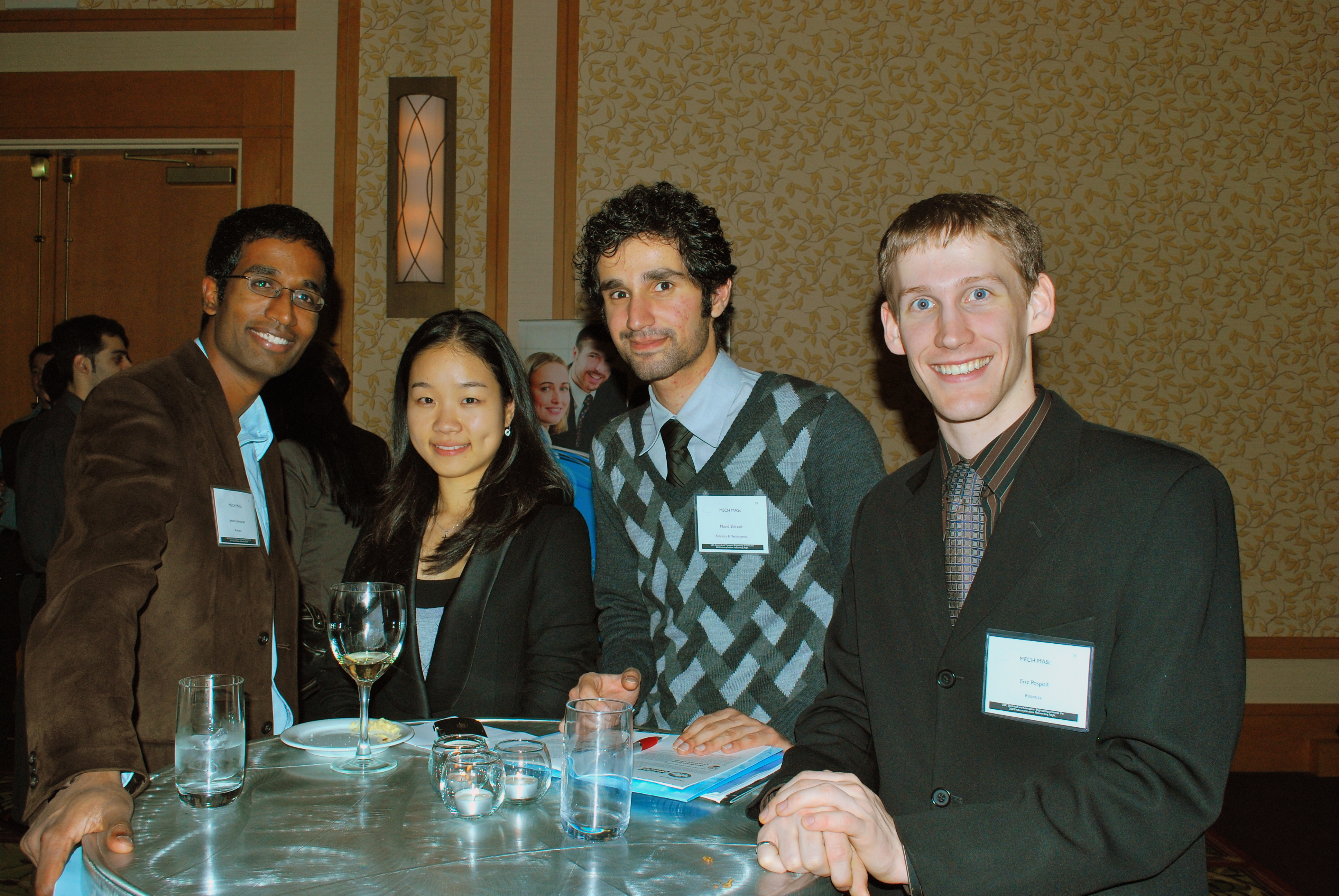
My labmate Navid found this key and randomly gave it to me. We don’t know what this key is for nor who it belongs to. But Navid labeled it “the key that opens all doors”. What an awesome thought! Now I have a key that opens all doors on my keychain. lol
Yes. That’s right. I’ve been asked this question three times this past week (and I JUST started my PhD).
It’s one of those questions that fans of PhD Comics, myself included, might file in the “Do not ask PhD students” pile (some of these questions include “How’s your research going?” and “How long have you been doing your PhD?”).
Actually, I don’t mind answering this question nor being asked this question. Typically people who ask me this are either interested in joining the incredible world of academia (or robotics research) themselves, or are genuinely interested in my research work/topic that they are curious where I want to take my research.
So none of the motivations for asking these questions poke my heart in any way. It actually gives me the opportunity to reflect on my adventures into the forest of academia. More importantly, it gives me the chance to let others know that just because someone wrote an article on the Economist about how doing a PhD is a terrible idea in terms of job prospective point of view, that really shouldn’t be the main reason for you to stop pursuing what you really want to do in your life. If it does, then maybe research (or the field) isn’t really your passion.
Some of the arguments on The Economist article, which I read a while back (2010), are as follows.
a) “A PhD may offer no financial benefit over a master’s degree. It can even reduce earnings”…. “The earnings premium for a PhD is 26%. But the premium for a master’s degree, which can be accomplished in as little as one year, is almost as high, at 23%. In some subjects the premium for a PhD vanishes entirely.”
b) “Many students say they are pursuing their subject out of love, and that education is an end in itself. Some give little thought to where the qualification might lead. In one study of British PhD graduates, about a third admitted that they were doing their doctorate partly to go on being a student, or put off job hunting. Nearly half of engineering students admitted to this.”
c) “The organisations that pay for research have realised that many PhDs find it tough to transfer their skills into the job market. Writing lab reports, giving academic presentations and conducting six-month literature reviews can be surprisingly unhelpful in a world where technical knowledge has to be assimilated quickly and presented simply to a wide audience.” – quotes from the Economist article.
They are all valid points. If you really care about money, and money is your top priority, then you should probably take a good look at the number and critically think about the figures.
And if you think of tenured faculty positions as the ultimate end to your academic journey, then you might look at the number of PhD students who graduate vs. the number of faculty positions available every year and let out a deep sigh. That’s only if that’s the only ultimate end you’re aiming for. But why should it be?
I read a really great report written by Dev Aujla, an acquaintance of mine, a while back called Occupation: Change the World (you can get a free copy on-line via the link). The report outlined how, in contrast to our parents’ generation where education and career were tightly coupled as though the type of education you get is input to your formula that spits out an output called career/success, people in our generation can find/build successful and meaningful careers with a little bit of willingness to take on a nonlinear path. I believe that if you are open to opportunities as they come, rather than trusting third party sources to predict your future probability of success (using their definition of success to judge your own) and directly applying it to your present decision to pursue your passion, you really shouldn’t have anything to worry about in terms of whether you will have happy life after grad school. Of course, that’s just my opinion.
I told one of prospective grad students that every time I answer the question, I am reminded how I am really glad that I am doing my PhD.
Yes, it is probably going to be the soul sucking hair tearing years of finding an answer to my research question. But yes, it will probably be worth it, because as soon as I find out that the question I’m trying to answer isn’t really worth it, then I will also have some idea as to why that is the case and can move forward from there. So the journey itself can only be worthwhile overall — of course, again, that’s imho. And yes, I think I will enjoy the process of the soul sucking hair tearing experience because I know from my master’s that, beneath it all, it is a lot of learning, fun, and challenging yourself to grow into a better person/researcher.
Within human-robot interaction (my field of research), there isn’t really an abundance of industry jobs out there — let alone roboethics as a matter of fact (also my field of research). And I don’t think there is such a thing as “academic insurance” you can enroll today that will guarantee to pay you a certain amount of money after you graduate if you don’t end up with your dream job at the end of the tunnel.
But, as I recently told the prospective student, if you are already worried about not being hired by someone in the future, then you might want to boost your confidence a little bit and have some faith in your own ability to create your own paths. 😉
Even while looking at 3+ more years of doing my PhD here at UBC, I have no doubt in my mind that my future (after getting my PhD) is going to be filled with excitement, bright paths forward, and happiness. Because, if it isn’t then can’t I find something that will make it so? Of course, I may become super bitter and depressed by the end of my PhD and may laugh when I read this post again. But I hope that my future me — if I do become bitter and depressed or anything like that that is — will continue to find ways to remain creative, not just in research or making stuff, but in designing my own life and my career.
For example, other than applying for a faculty position, I could work for a government organization, apply for an industry position, continue working as a communicator of scientific information on the web, start my own company, work as an independent consultant, etc. Just think about it. So many possibilities!
As long as I don’t rely on decades old formulas someone else has developed as my life’s instruction manual (e.g., do undergrad, go to grad school, do postdoc, apply and hope to god you get hired somewhere), and maintain a level of willingness to take on whatever comes in my way, I think I have no reason to worry about the things the Economist article outlined.
And, although I don’t have my PhD yet and can’t provide a concrete example from my life that everything is going to work out for everyone, I’d like to encourage those of you considering grad school to think about grad school from a positive perspective as well. It doesn’t matter what the numbers or other people tell you is a good or bad life choice, just believe in your own abilities and go for it!
 Follow
Follow

